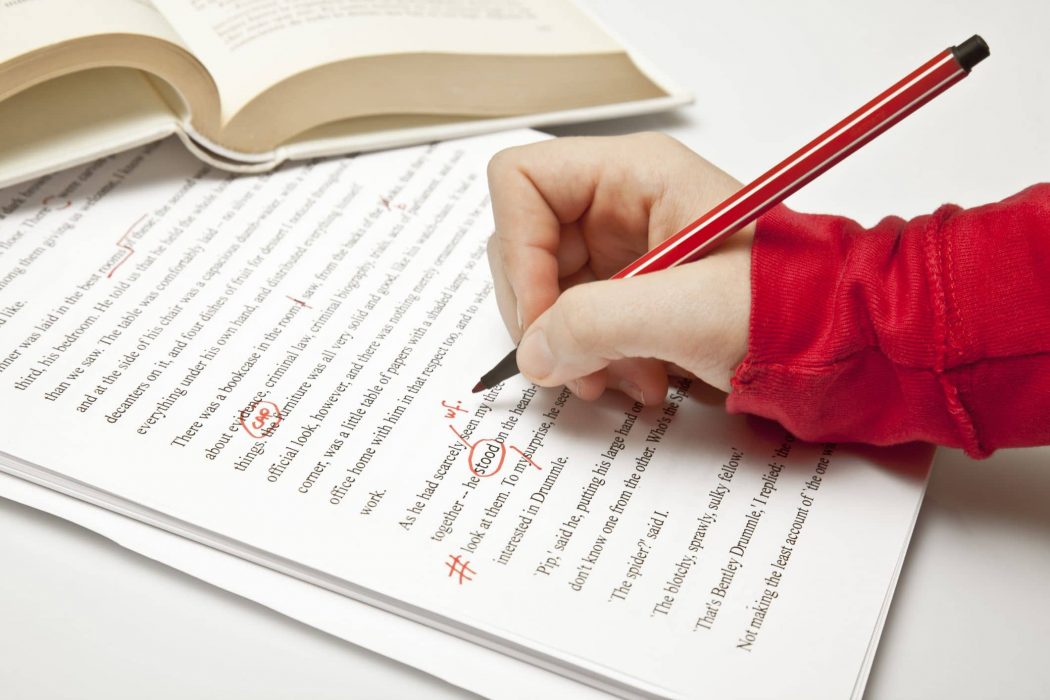
Academic writing is an integral part of university study. However, it’s never been an easy task to abide by specific rules and structures to create an engaging essay. One of the ways to produce writing that can lead you to academic success is to avoid all informal language, colloquialisms, or the overuse of rhetorical questions.
Here in this blog, you can learn about the most common words you should forget when writing an essay. The rules aren’t complicated, but your writing will lack clarity and perfection without them. So without further ado, let’s take a close look at words you shouldn’t use in an essay.
Types of Clichés and Words to Avoid in Essays
Impeccable writing requires precise word usage. For example, some common phrases you use in everyday speech don’t serve well in academic writing. Most words to avoid in essays are hyperbolized or exaggerated, too casual, and so overused that readers consider them annoying. On the other hand, informal phrases are acceptable in various disciplines when the writing is more conversational and directed at a non-academic audience.
However, bypassing the following pitfalls will make your paper impeccable regardless of the writing style:
- Avoid clichés.
- Avoid contractions.
- Avoid intensifiers.
- Avoid vague quantities.
- Avoid totalizing and generalizing words.
- Avoid dogmatic claims.
- Avoid gendered language.
- Avoid introductory phrases.
- Avoid repetitive phrases.
Elision is what happens to words when we speak casually. It is marked with an apostrophe in written form, representing a missing letter or letters. Namely, contractions make writing informal and not appropriate for a scholarly audience. Instead of words such as “can’t,” “she’ll,” and “should’ve” use “cannot,” “she will,” and “should have.”
Adverbs such as “very,” “extremely,” “absolutely,” “literally,” and “highly” are intensifiers of a verb. Avoid their usage if you feel they are unnecessary to convey your point in academic writing.
Use a precise amount whenever it is possible. If you don’t have an exact quantity, use a more formal word such as “many,” “countless,” “myriad,” or “numerous.”
Another error in writing is totalizing words. They tend to oversimplify your claim and turn a complex situation into an irrefutable fact. Words like “always” and “never” make claims too strong for academic writing. They can lead you to generalize results when it is not appropriate. However, there are exceptional cases; for example, if your consequences consistently reveal the same result, you can say “always” or “never” as long as you specify that it is within the scope or context of your study.
Dogmatic claims are those that state your opinion in a pretentious manner. The word “must” makes a strong claim in the form of an order. Thus try to frame your ideas as a suggestion instead of in order.
Of course, gendered language is inevitable if your research subject is men or women or both groups. However, it’s vital to avoid gendered language in all other cases. Experts state that using gender-neutral language will improve your chances of getting published. You can make your language gender-neutral and concise by using words such as “person” or “people” rather than “man” or “woman.”
If you can, break gender stereotypes by removing the gender bias from occupations such as firefighters, farmers, soldiers, fishers, chairpersons, etc. Besides, do not make pronouns plural to avoid gendering them if the antecedent noun is singular as it is grammatically incorrect.
Introductory phrases get clunky and can often be eliminated or shortened. For example, instead of saying “it’s important to note,” experiment with shorter ways by saying “importantly.”
Repetition can occur in the sentence structures and the words that you use. It interrupts the flow of the speech and makes it bland. Also, changing one of the repetitive phrases creates more interest in the sentence while retaining the same meaning.
List of Phrases and Words You Shouldn’t Use in an Essay
This list is a small selection of phrases meant to illustrate the style of informal phrases. It is important to remember that these words and terms may be appropriate for everyday conversations, but they should not be used in academic writing.
Here is the list of words too colloquial, vague, and inappropriate – words to avoid in essays:
- “Things,” “stuff,” “good,” “bad,” “big” etc. – poor vocabulary indicators.
- “In terms of,” “needless to say,” “in conclusion,” and “it goes without saying” – are useless phrases that are considered to be a trick to complete the word count.
- “Y’all,” “yinz,” “cool” – slangs are forbidden words in writing.
- “Can’t,” “don’t,” “she’ll,” “we’ve” – spell out all the contractions.
- “Whilst,” “shalt,” “amidst,” “amongst” – avoid archaic words.
- Beginning a sentence with “And” or “But” – use transitional words instead.
- “You,” “your,” “yours,” “yourself” – don’t use the second person.
- “Nowadays,” “oftentimes,” “in this day and age,” “good old days” – these words aren’t specific enough.
- “Normal” – the word is too subjective. What is normal for you may not be not for others.
Be aware of the rules listed above and implement them to make your readers enjoy every sentence of your writing.
Forbidden Words in Writing Introductory, Thesis, and Conclusion
All the rules about proper word usage listed above refer to all the essay paragraphs. However, our best essay writing service would like you to be aware of some common mistakes made in essay parts to avoid them effectively.
Don’t Address the Question’s Topic in Your Introduction
The test of a good introduction is whether someone can guess what the essay question is just from reading it. If not, the opening has failed. Therefore, a good introduction briefly sets out the topic and your position regarding the question. Be specific about your case, but don’t go into too much detail—no examples or definitions are needed in an introduction. Instead, use exact words to introduce your main idea better.
Don’t try to “wow” the reader with grandiose statements or pithy quotes that are broadly related to your topic. The trouble with such trite openings is that they do not focus your reader. Rhetorical questions are also a wrong choice for a first sentence. Instead, the first one or two sentences of an introduction should directly address the question with a statement outlining your position regarding the topic.
Using the question’s terminology helps keep the report focused and ensures that you have not misinterpreted or misrepresented it. But never quote the question itself—the marker knows what it is. The following sentences should explain the key aspects that inform your position. The last part of the introduction should outline the method of your argument or the structure of your essay.
Avoid Weak Thesis Statements
A thesis statement makes the argument for your article. Here are some tips if you want it to be concise. First, the list of the words not to use in an essay can help you recognize them and remove them from the thesis right away.
For example, do not start a thesis statement with a broad phrase like “Since the dawn of time” because it would be hard to convey your point later. Please do not make a statement that is so commonly accepted that it does not need to be argued. Finally, do not write a thesis statement as a question. It’s a thesis statement, not a thesis question.
Stray from the Focus of the Question in the Conclusion Paragraph
The conclusion’s job is to wrap up by highlighting the key ideas you have been arguing in response to the question. It helps to reuse the same terminology for consistency without repeating what you said in the introduction.
How do you know if something is off-topic? Ask yourself whether your paragraph or sentence directly helps you answer the essay question. If not, it is off-topic and should be eliminated from the essay. You must be specific and tell the critical aspects. The trick is to say what you have argued that does not just repeat what you have already said.
Clumsy Words to Avoid in Writing
Professors detest vagueness. So slang, jargon, and generalizing words create an impression of not proper research. In addition to being ambiguous, vague words and phrases can render a good piece of research completely useless. Considering all the previously listed rules can help your work achieve acceptance among people with your flawless work.
Simply skimming the types of words to avoid in an essay can make you notice them clearer later. Thus you can have readable and meaningful writing and make the grade.




